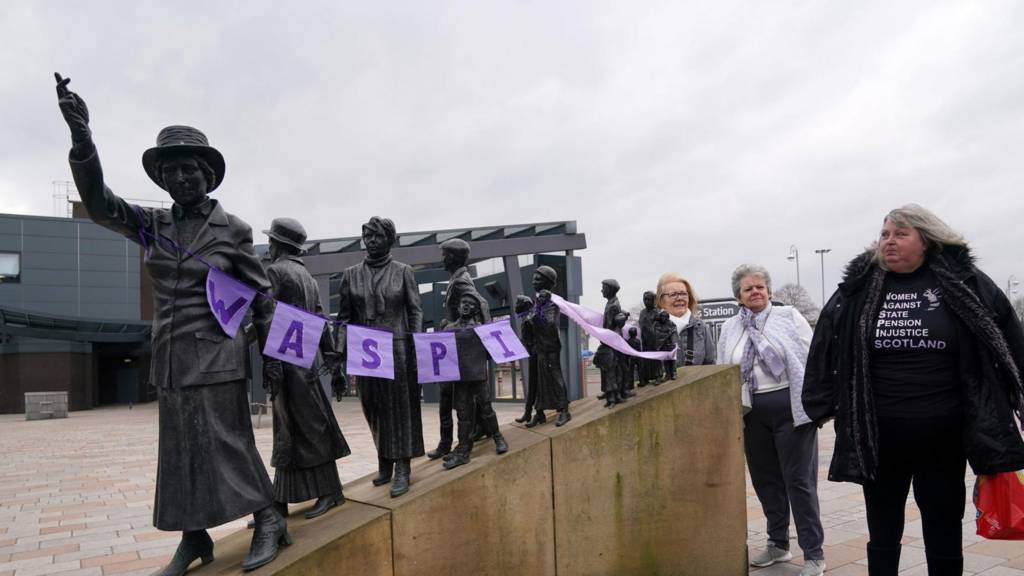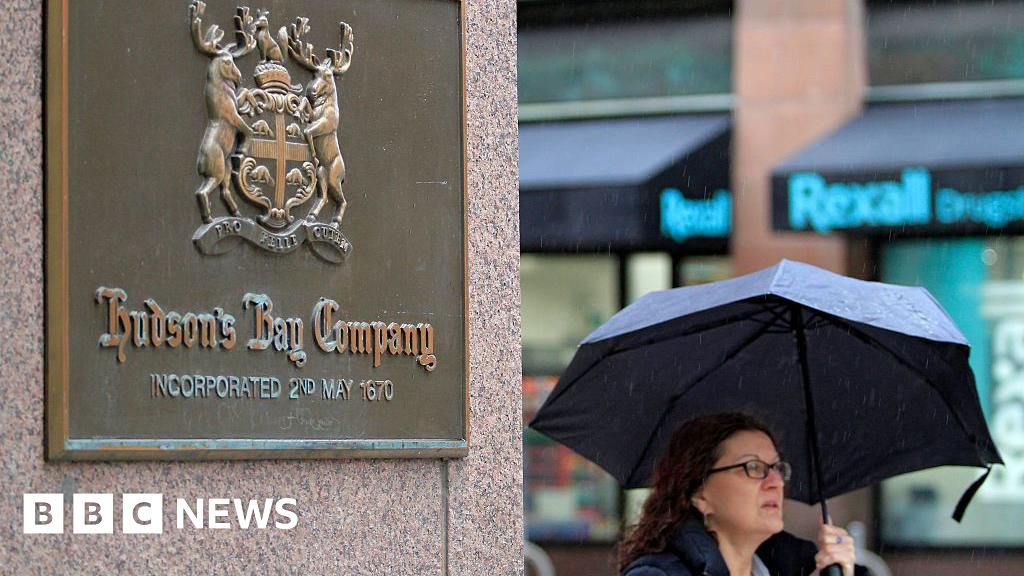ARTICLE AD BOX

2,605
viewing this page
This page will feature your stories and opinions - email haveyoursay@bbc.co.uk
Got a TV Licence?
You need one to watch live TV on any channel or device, and BBC programmes on iPlayer. It’s the law.
Live Reporting
Edited by Nadia Ragozhina
All times stated are UK
Investigation set up to look at how retirement age rise was communicated
The Parliamentary and Health Service Ombudsman investigation was set up to look at how the retirement age rise was communicated by the Department of Work and Pensions to women most likely to be impacted by the change.
In 2021, the body published the first stage of its report, which criticised the government for being too slow to inform women about how they would be affected.
The women are hoping that their evidence will be treated with the same "respect" the Ombudsman gave to the government evidence, and see the injustices they suffered.
Today we are awaiting the publication of the second and third parts of its investigation, which deal with whether those communication failings amounted to "injustice" and possible recommendations on compensation.
The ombudsman is legally not able to recommend the government reimburses women for the full amount of pension they did not receive.
Watch: Waspi chair Angela Madden - there was a 'moral duty' to forewarn us
Video content
Video caption: Waspi chair Angela Madden: There was a 'moral duty' to forewarn usThe chair of the campaign group Women Against State Pension Inequality (Waspi) says she's hoping thousands of women will be offered compensation following the "injustices" they've suffered.
Angela Madden says the government's decision to raise their state pension age in line with men was made at too short notice and many women had no time to plan for it.
Madden herself says she was unable to get back into the workforce having given up her job to care for a relative believing she would soon be entitled to the state pension.
Campaigners say some women plunged into poverty be law change
The Parliamentary and Health Service Ombudsman report comes after years of campaigning and legal challenges over how the retirement age for women was brought into line with men.
If the report recommends compensation, the potential bill for the government could run into the billions.
Campaigners from Women Against State Pension Inequality (Waspi) say some women born in the 1950s were not aware of the changes to the retirement age and were plunged into poverty as they struggled to find work due to their age.
Its chair, Angela Madden, says she had already given up a full-time job, and had been out of work for more than a year when she was informed of the new pension age.
"Some people had to sell their homes, some people had their divorce settlements worked out on a state pension age of 60," she tells BBC Breakfast.
"Some people are absolutely destitute, and didn't have any money to survive," Madden adds.
'I missed out on £47,000 because of pension change'
A woman who missed out on thousands of pounds because of the pension age change says she had no choice but to continue working despite suffering with painful arthritis.
Karen Woodward, 65, from Portland, is self-employed and started suffering from arthritis in her 50s.
Two years before she was due to retire, a friend told her of the change to the pension age for women.
“It was a huge shock. Because of being self-employed I hadn’t started a pension plan or put any money aside because I didn’t think there was any need to,” she tells BBC Radio 4’s Today programme.
Woodward says she missed out on £47,000 because of the change.
To keep up a “nice, comfortable, ordinary standard of living” she had to continue working, despite having “very, very painful days”.
“Having the pension would have meant the show didn’t have to go on,” she says.
Hello and welcome

Nadia Ragozhina
Live reporter
A long-awaited report on how women born in the 1950s were affected by increases to their retirement age is due to be published today.
An ombudsman has been looking at potential injustices resulting from the decision to raise women's retirement age to bring it into line with men's.
For more than six decades in the UK, men retired at 65 and women retired at 60.
In 1995, a new law set out a plan to raise the retirement age for women so it would be the same as men.
The original plan was for the changes to come in between 2010 and 2020, but in 2011 the coalition government accelerated the shift in a bid to reduce the cost of the state pension system to the taxpayer.
Campaigners say millions of women suffered financially as they were not warned about the rise ahead of time, and should receive compensation.
Stay with us as we bring you all the latest lines and analysis, and hear from some of the women whose pensions were affected by the change in retirement age.

 1 year ago
70
1 year ago
70








 English (US) ·
English (US) ·